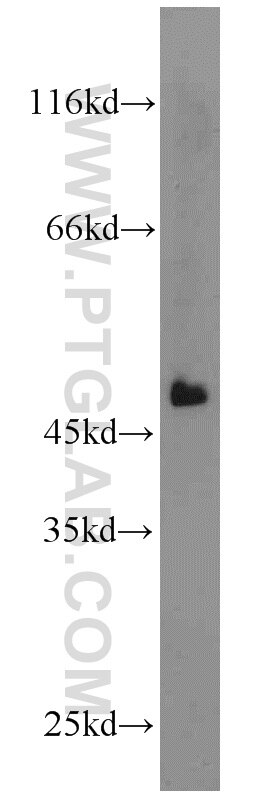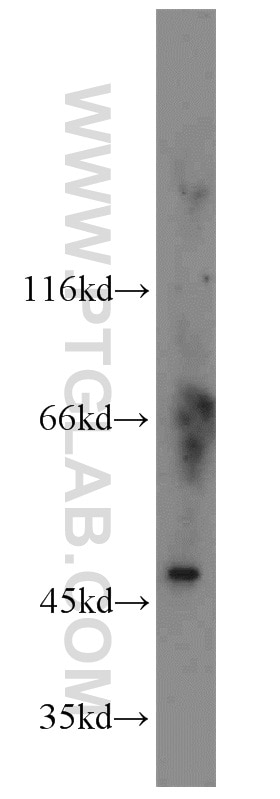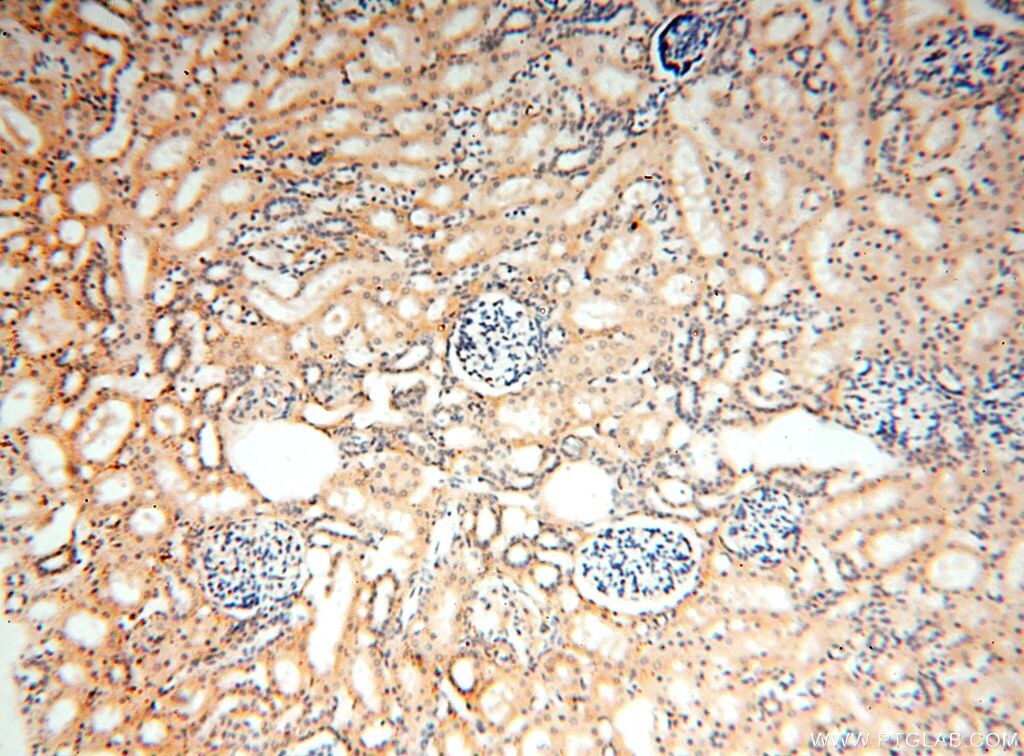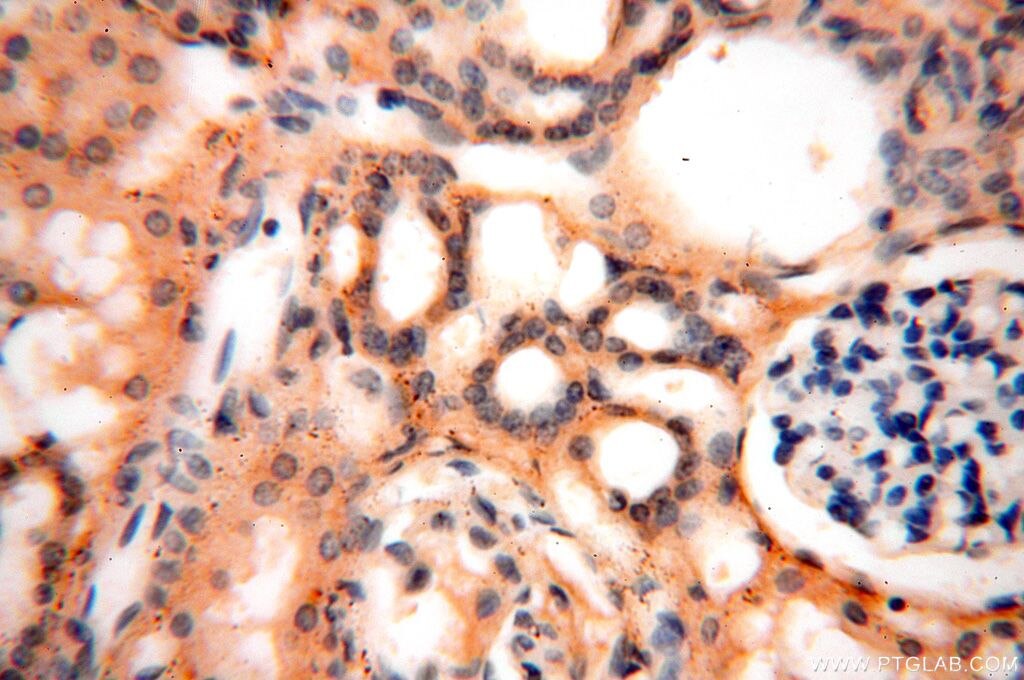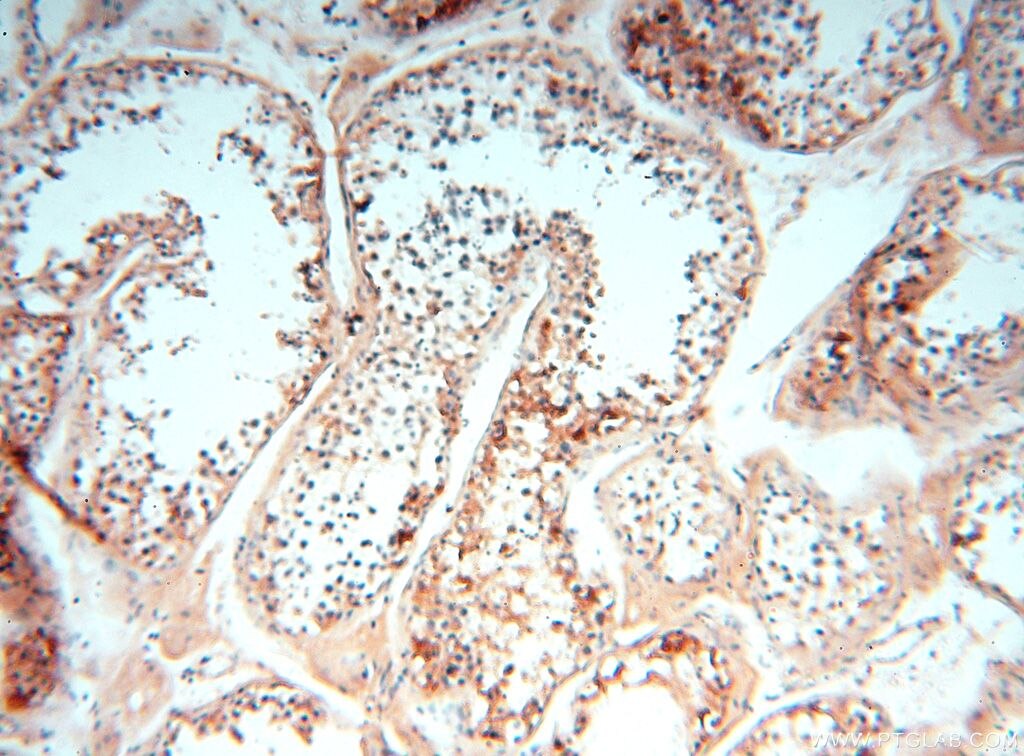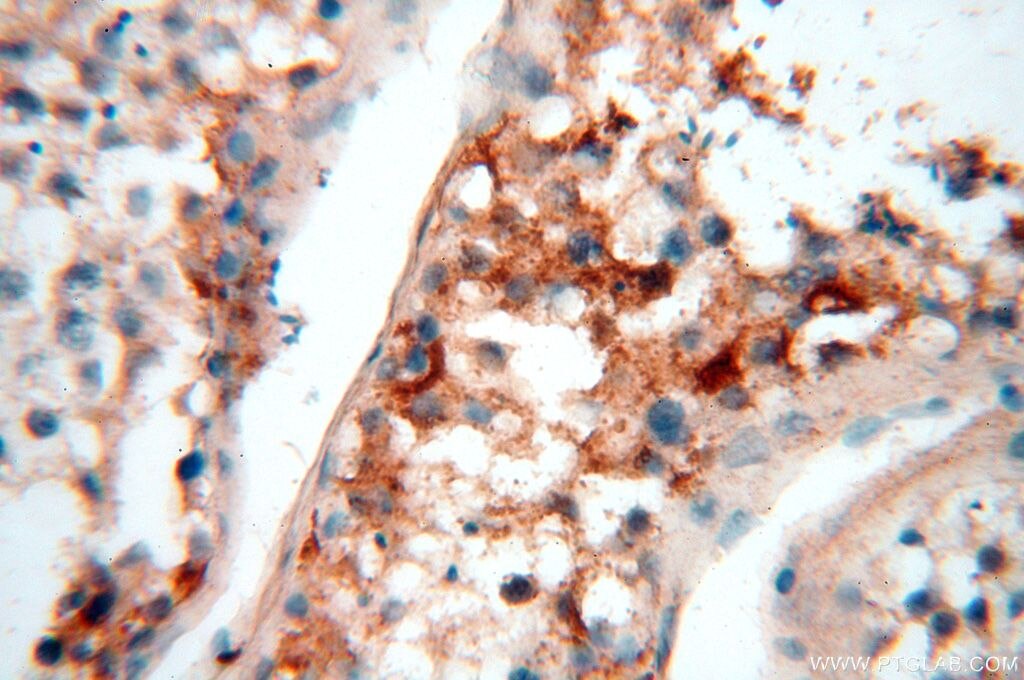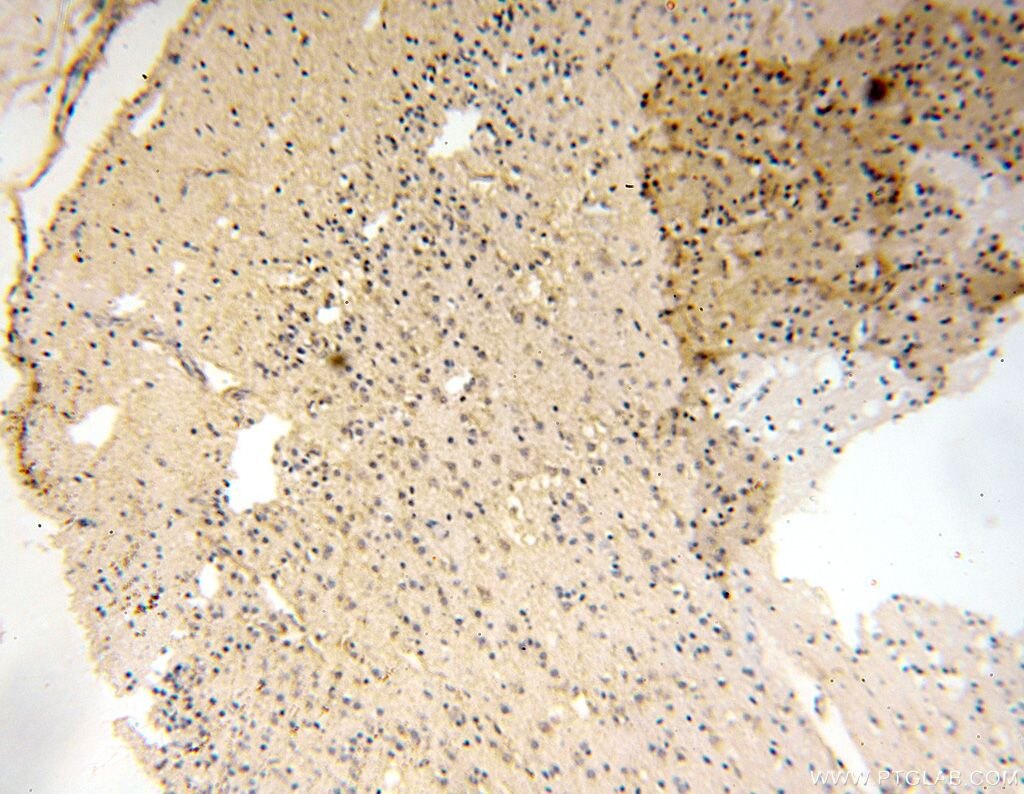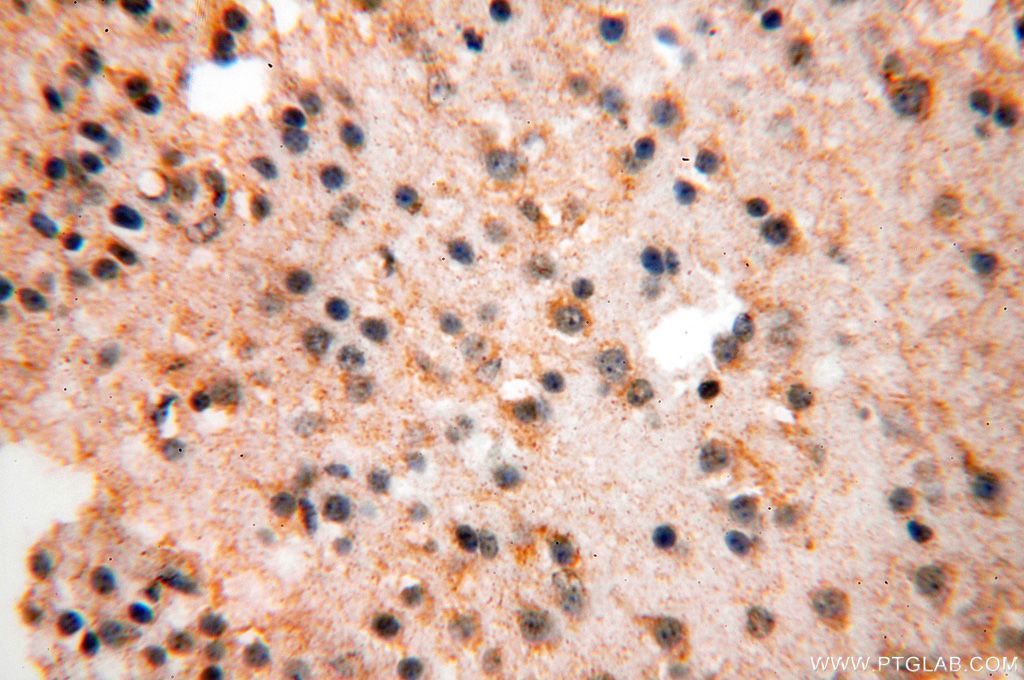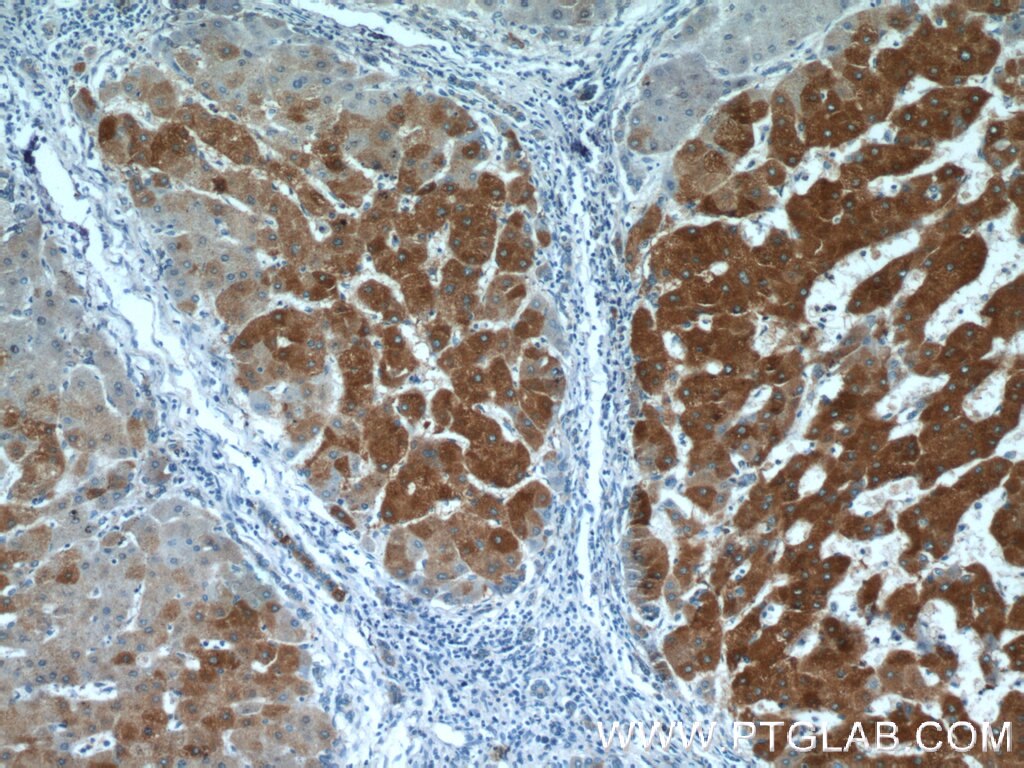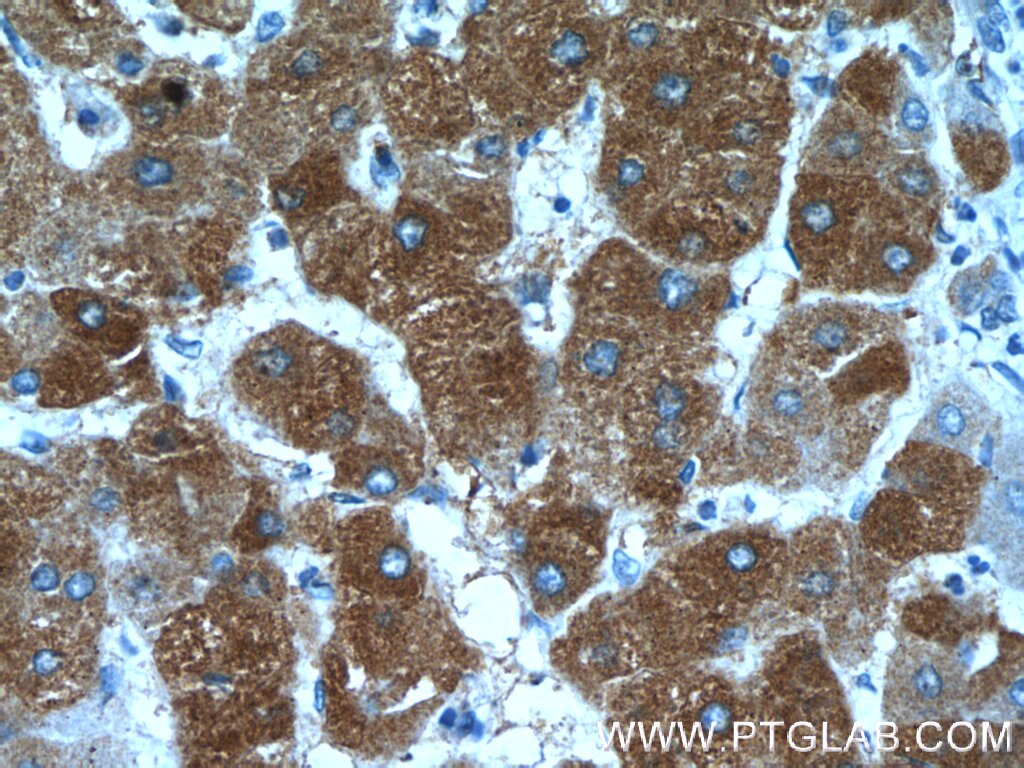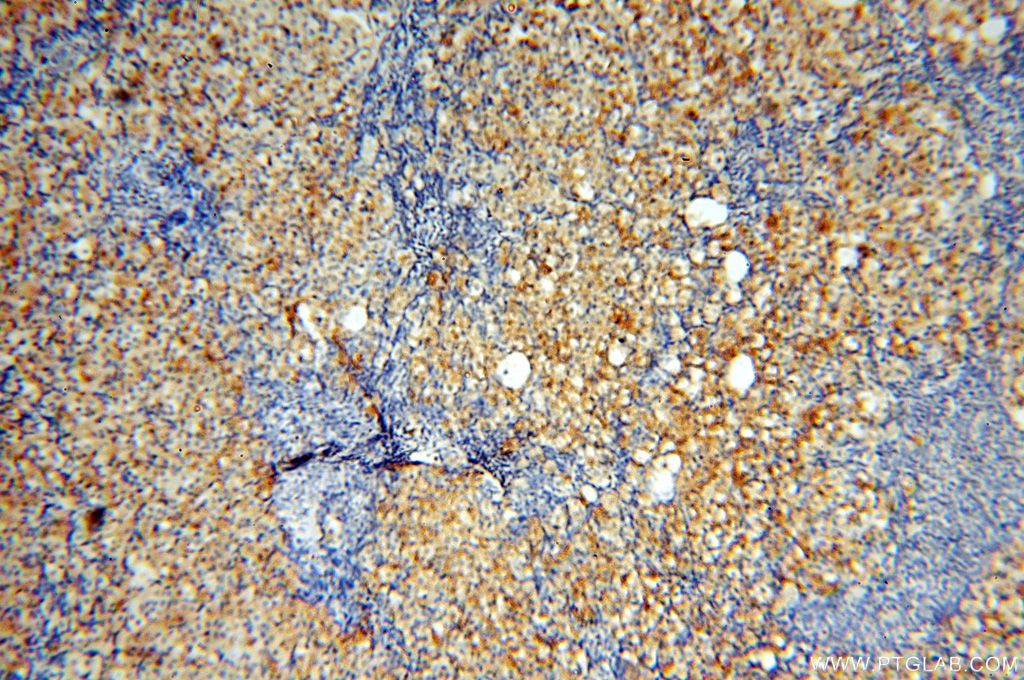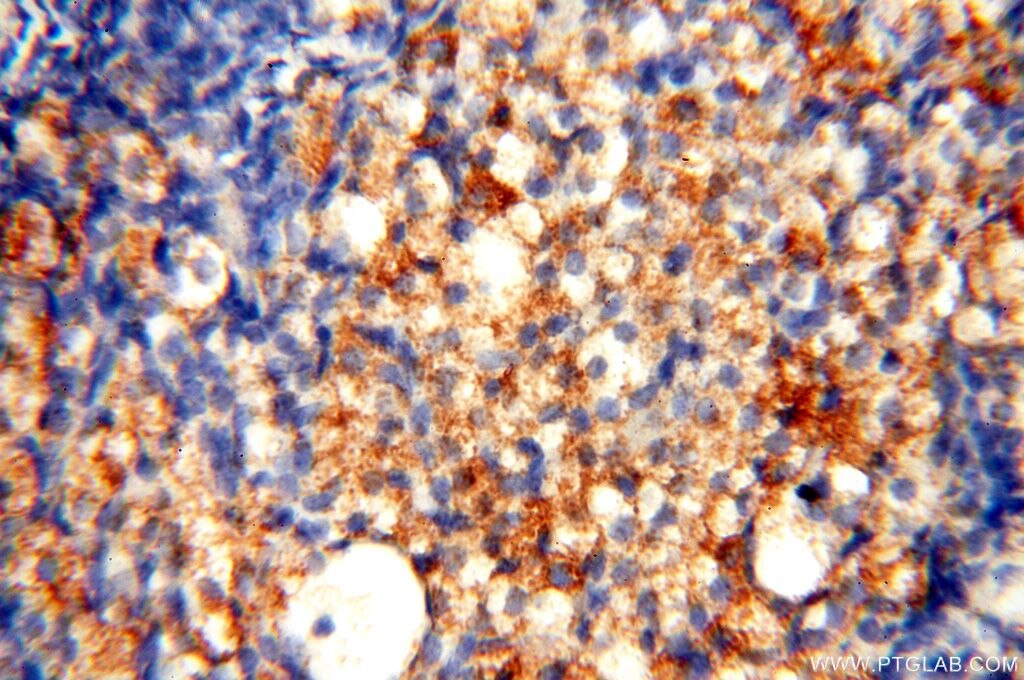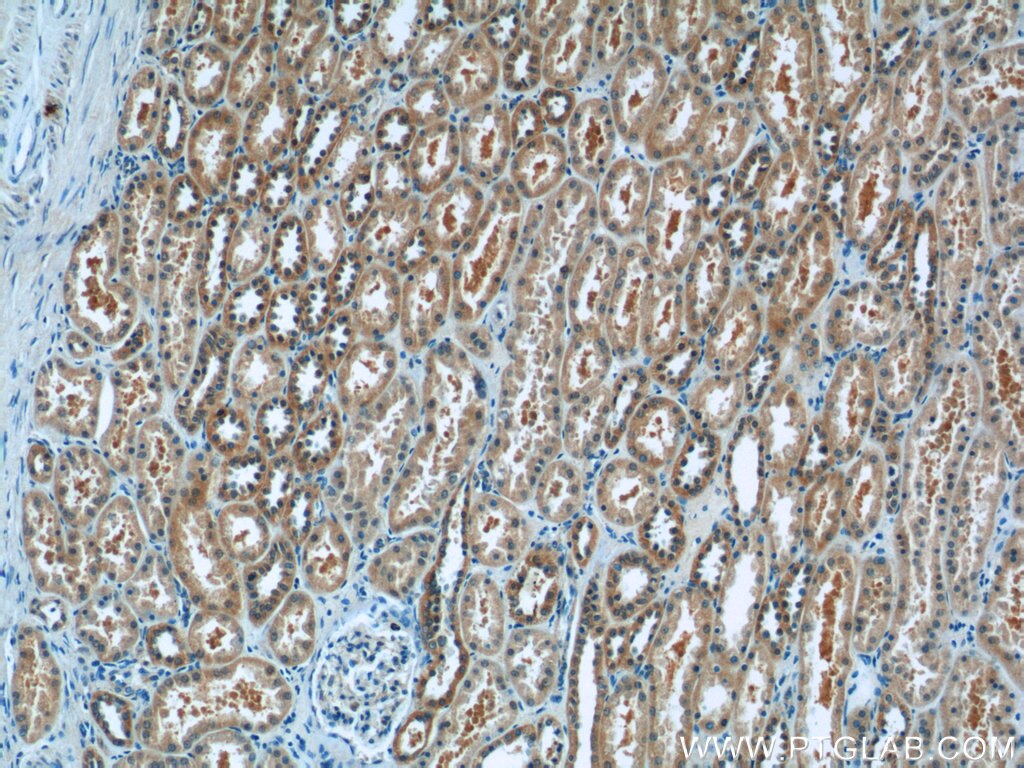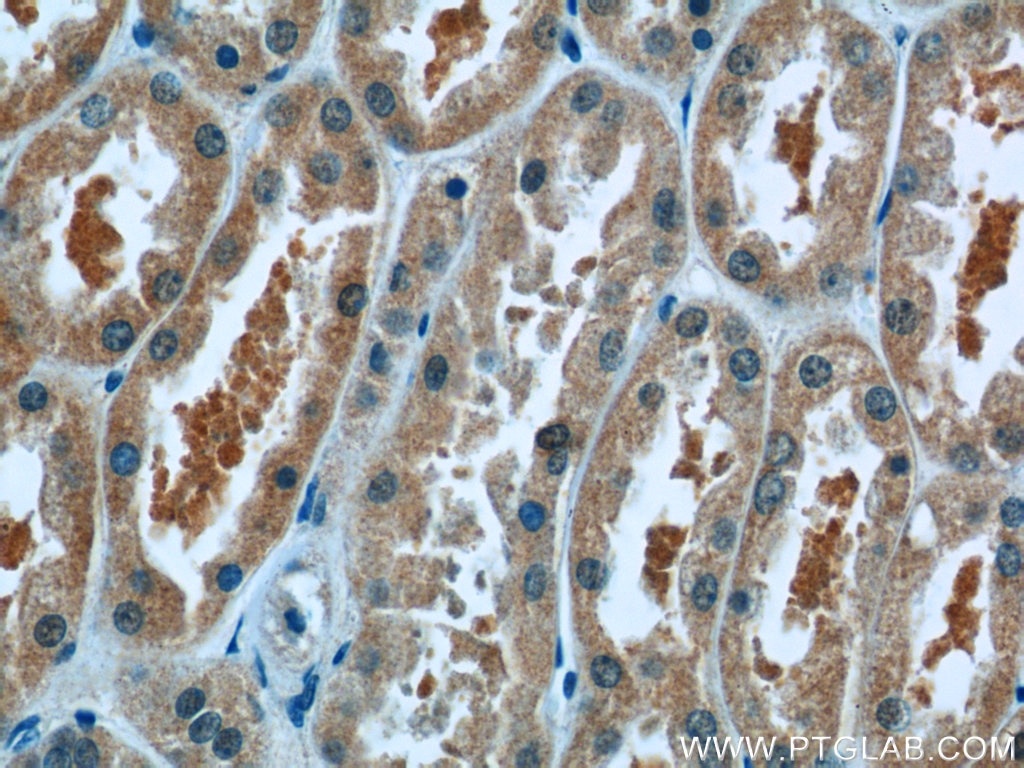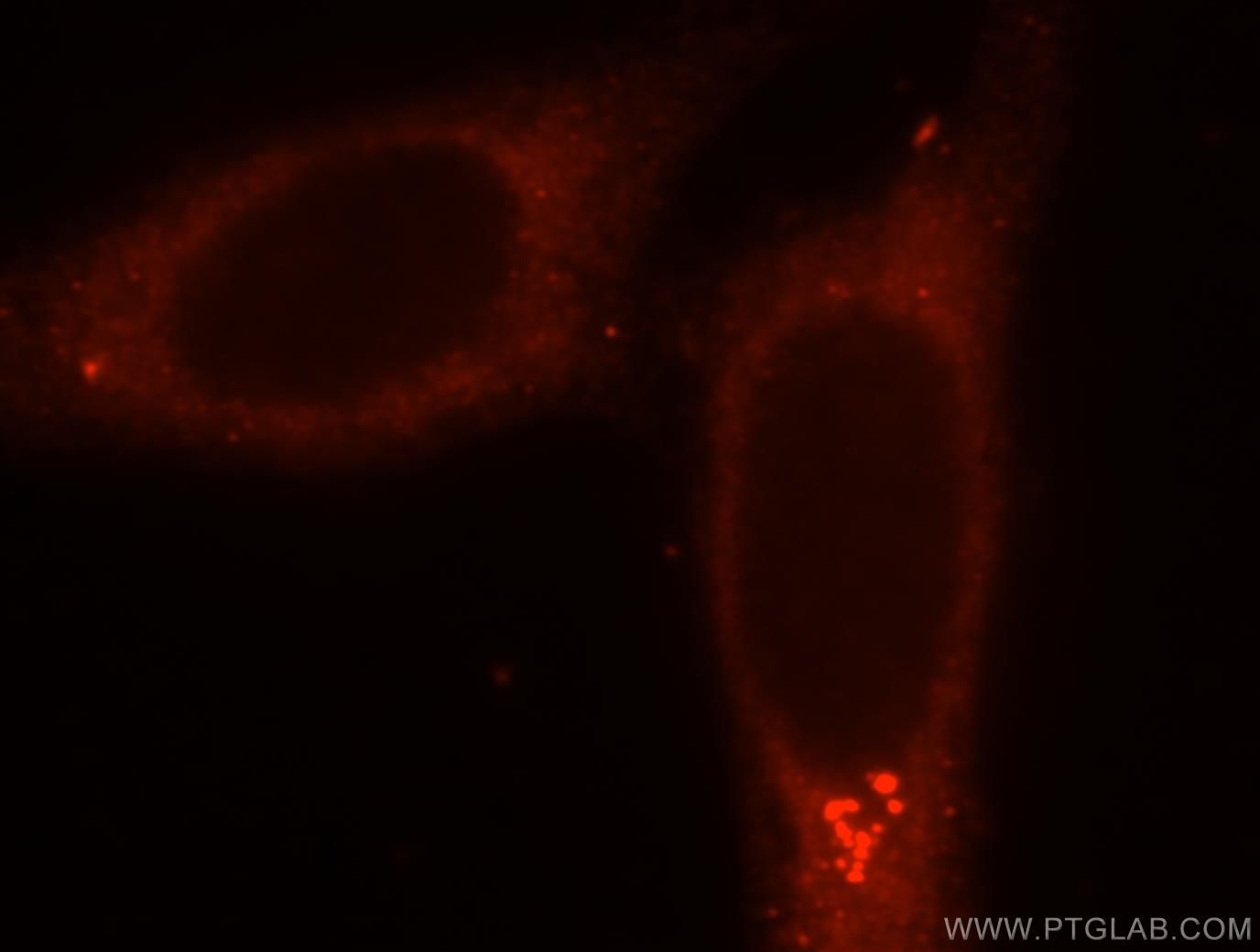Anticorps Polyclonal de lapin anti-SMU1
SMU1 Polyclonal Antibody for WB, IHC, IF/ICC, ELISA
Hôte / Isotype
Lapin / IgG
Réactivité testée
Humain, rat, souris
Applications
WB, IHC, IF/ICC, ELISA
Conjugaison
Non conjugué
N° de cat : 15511-1-AP
Synonymes
Galerie de données de validation
Applications testées
| Résultats positifs en WB | tissu hépatique de souris, cellules K-562 |
| Résultats positifs en IHC | tissu rénal humain, tissu cérébral humain, tissu de cirrhose hépatique humain, tissu ovarien humain, tissu testiculaire humain il est suggéré de démasquer l'antigène avec un tampon de TE buffer pH 9.0; (*) À défaut, 'le démasquage de l'antigène peut être 'effectué avec un tampon citrate pH 6,0. |
| Résultats positifs en IF/ICC | cellules HepG2 |
Dilution recommandée
| Application | Dilution |
|---|---|
| Western Blot (WB) | WB : 1:500-1:1000 |
| Immunohistochimie (IHC) | IHC : 1:20-1:200 |
| Immunofluorescence (IF)/ICC | IF/ICC : 1:10-1:100 |
| It is recommended that this reagent should be titrated in each testing system to obtain optimal results. | |
| Sample-dependent, check data in validation data gallery | |
Informations sur le produit
15511-1-AP cible SMU1 dans les applications de WB, IHC, IF/ICC, ELISA et montre une réactivité avec des échantillons Humain, rat, souris
| Réactivité | Humain, rat, souris |
| Hôte / Isotype | Lapin / IgG |
| Clonalité | Polyclonal |
| Type | Anticorps |
| Immunogène | SMU1 Protéine recombinante Ag7688 |
| Nom complet | smu-1 suppressor of mec-8 and unc-52 homolog (C. elegans) |
| Masse moléculaire calculée | 58 kDa |
| Poids moléculaire observé | 45-50 kDa |
| Numéro d’acquisition GenBank | BC002876 |
| Symbole du gène | SMU1 |
| Identification du gène (NCBI) | 55234 |
| Conjugaison | Non conjugué |
| Forme | Liquide |
| Méthode de purification | Purification par affinité contre l'antigène |
| Tampon de stockage | PBS with 0.02% sodium azide and 50% glycerol |
| Conditions de stockage | Stocker à -20°C. Stable pendant un an après l'expédition. L'aliquotage n'est pas nécessaire pour le stockage à -20oC Les 20ul contiennent 0,1% de BSA. |
Informations générales
Sum1, belongs to the WD repeat SMU1 family. Human SMU1 is a component of the spliceosome fSAP57(PMID: 15254247). It is possible that the mutation in Smu1 affects spliceosome function, resulting in generation of improper splice variants, which could explain the phenotypes of tsTM18 cells. Some results suggest that Smu1 participates in at least two steps of splicing: splice-site choice and control of accuracy(PMID: 17105761). This antibody is a rabbit polyclonal antibody raised against a region of human REDD1 antigen.
Protocole
| Product Specific Protocols | |
|---|---|
| WB protocol for SMU1 antibody 15511-1-AP | Download protocol |
| IHC protocol for SMU1 antibody 15511-1-AP | Download protocol |
| IF protocol for SMU1 antibody 15511-1-AP | Download protocol |
| Standard Protocols | |
|---|---|
| Click here to view our Standard Protocols |
